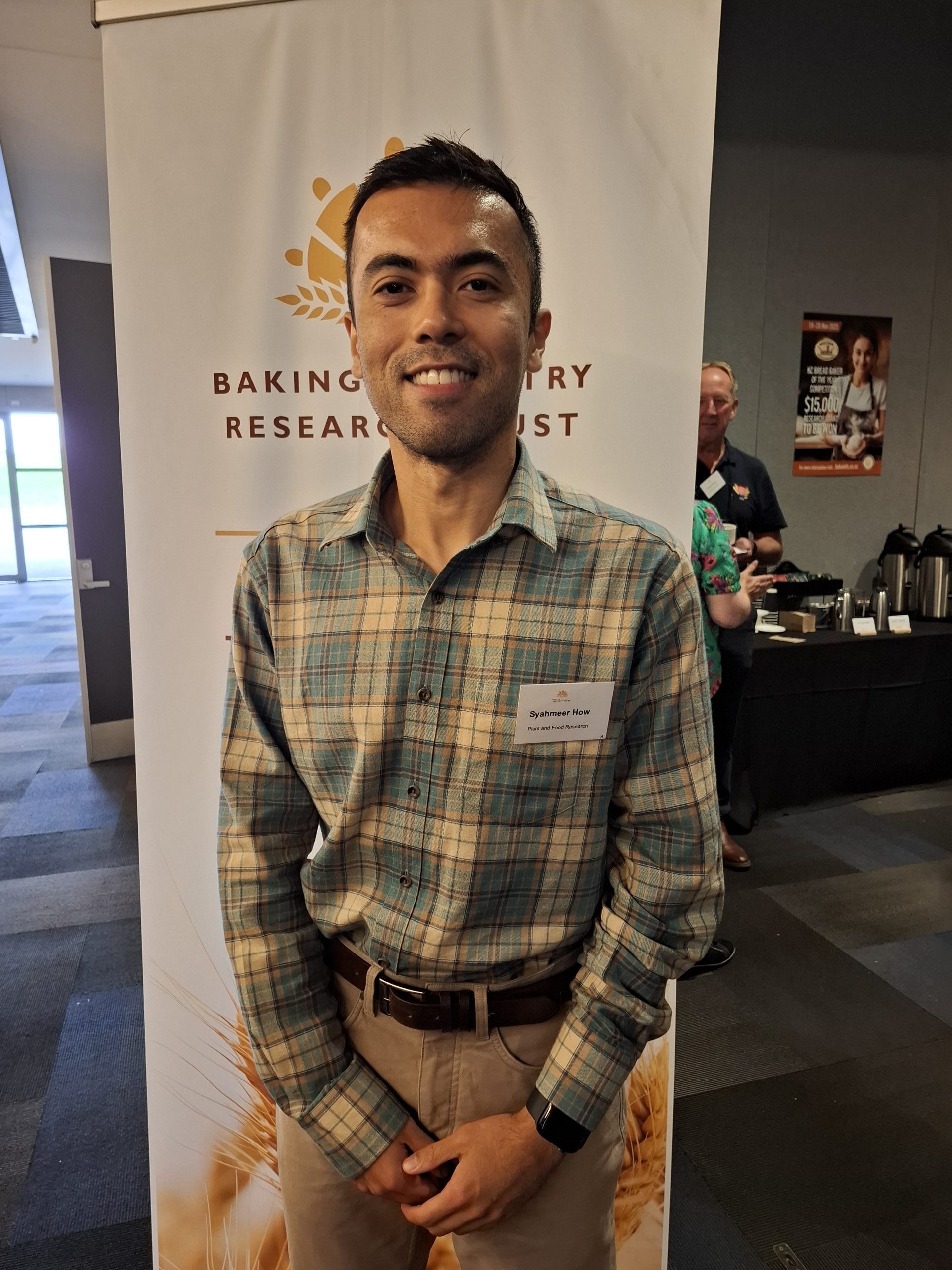Recent Articles
- 2025 Entrants Bread Baker of the Year Competition
- New logo shines light on New Zealand-grown grains
- Recovering valuable resources to create sustainable biogas and biofertilizer
- Field to Flour: Can we reduce our footprint?
- Leading Action on Food Waste
- Bread bags from bread returns
- Baking Global Technology Scan
- Sustainability for the Baking Industry – Food without Footprint
- Better energy management for bakers
- Update on the Soft Plastic Recycling Scheme
Presented as part of Technology Transfer Seminars 2025
Syahmeer How, Plant & Food Research Limited, Research Scientist
Syahmeer How (B.E, PhD Chemical & Bioprocess Engineering, Massey University) is a Bioprocess Engineer at Plant & Food Research Limited in Palmerston North. He specialises in technoeconomic analysis, process optimisation, and decarbonisation strategies for the food industry. Syahmeer plays a key role in developing the Baking Global Technology Scan, applying his expertise in chemical engineering to inform strategic decision-making. Outside of work, he is a passionate squash player and a dedicated foodie.
How can commercial bakeries be more energy efficient and lower their carbon emissions?
EECA (Energy Efficiency and Conservation Authority) aims to mobilise New Zealanders to be world leaders in clean and clever energy use. EECA’s sector decarbonisation programme provides tailored tools and resources to help commercial bakeries be more energy efficient and lower their carbon emissions.
Baking decarbonisation technologies are prominent in Europe and the US. EECA engaged Plant & Food Research Limited to undertake this technology scan looking at emerging technologies and innovation within the baking sector both locally and globally and defining how these could be applied within the New Zealand context.
An energy breakdown showed that baking is the processing step with the largest potential for greenhouse gas (GHG) emission reduction. Scanning the baking process gave an understanding of the energy consumption at each stage of the processes, to see what is most energy intensive for different bakery products. Gas-fired ovens are the main emitter of greenhouse gasses in New Zealand bakeries, and energy loss is a large part of the consumption.
Each technology option was given a rank score from 2–50 based on energy savings/greenhouse gas (GHG) emissions against relative cost of investment. These scores were used to rate and compare the technology options. The technologies were also evaluated for future potential, with ratings projected for 2030 to provide a dynamic outlook. The year 2030 was chosen as a reference point, aligning with New Zealand’s target to reduce greenhouse gas (GHG) emissions by 50% from 2005 levels.
The top technologies and practices recommended from the findings of this report include:
Process Technology
High Temperature Heat Pumps to recover and reuse low temperature heat: A robust decarbonisation solution by utilising waste heat from the production process.
Heat Recovery from Exhaust Gas: This technology provides higher greenhouse gas (GHG) savings compared to insulation upgrades, while remaining low-cost with a high Technology Readiness Level (TRL).
Heat Recovery
Dual Fuel Burners: This flexible option utilises natural gas now, with the capability to switch to electricity in the future.
Hydrogen Burners for Ovens: Future potential exists as infrastructure develops. Currently associated with high operational costs due to limited hydrogen production.
Fuel Switching
Oven Insulation Upgrades: An affordable and easy to implement solution but with minimal impact on greenhouse gas (GHG) emissions.
Exhaust fans with variable dampers: By optimising exhaust systems with variable dampers and adjusting fan drives, bakeries can reduce energy consumption and improve oven efficiency.
Process Scanning & Optimisation: A low-cost, high Technology Readiness Level (TRL) option, although it offers limited greenhouse gas (GHG) emission savings.

